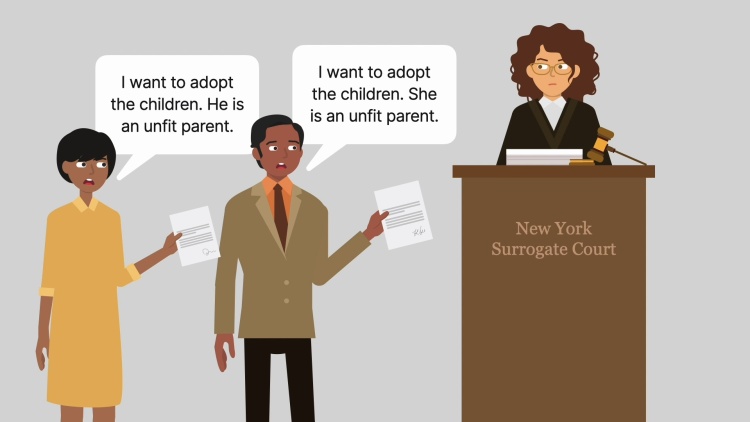Caban v. Mohammed
United States Supreme Court
441 U.S. 380 (1979)

- Written by Rich Walter, JD
Facts
A New York statute concerned the adoption of a couple's children after the couple separated. If the couple had been married, the statute required each parent to consent to the adoption. If the couple had not married, the statute required only the mother's consent. The statute only permitted an unmarried father to offer evidence at the adoption hearing. Maria Mohammed (plaintiff) and Abdiel Caban (defendant) were unmarried partners who played similar parental roles in their children's lives. Mohammed and Caban separated, and each petitioned a family court for permission to adopt the children. Mohammed blocked Caban's petition by withholding her consent. Caban opposed Mohammed's petition and testified in court as to her unfitness as a parent. Nevertheless, the court found that Mohammed could best promote the children's interests, permitted her to adopt the children, and terminated Caban's parental rights. Caban appealed, contending that New York's statute violated his rights to due process and equal protection under the United States Constitution's Fourteenth Amendment. The state contended that the statute reflected the close biological tie mothers have to their children and that dispensing with the need for an unmarried father's consent promoted the state's interest in swiftly finding good adoptive homes. Both the New York Supreme Court, Appellate Division, and the New York Court of Appeals dismissed Caban's appeal, and Caban appealed to the United States Supreme Court.
Rule of Law
Issue
Holding and Reasoning (Powell, J.)
Dissent (Stewart, J.)
Dissent (Stevens, J.)
What to do next…
Here's why 911,000 law students have relied on our case briefs:
- Written by law professors and practitioners, not other law students. 47,100 briefs, keyed to 997 casebooks. Top-notch customer support.
- The right amount of information, includes the facts, issues, rule of law, holding and reasoning, and any concurrences and dissents.
- Access in your classes, works on your mobile and tablet. Massive library of related video lessons and high quality multiple-choice questions.
- Easy to use, uniform format for every case brief. Written in plain English, not in legalese. Our briefs summarize and simplify; they don’t just repeat the court’s language.





